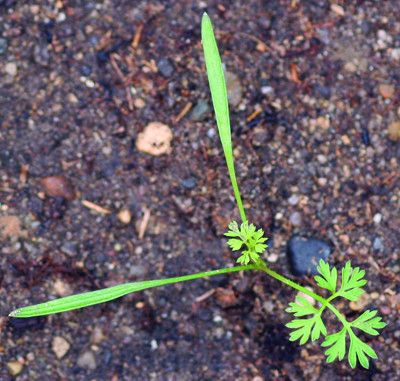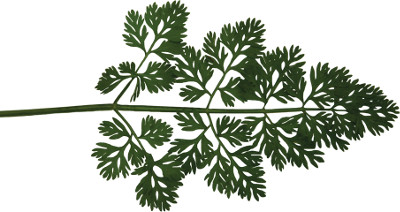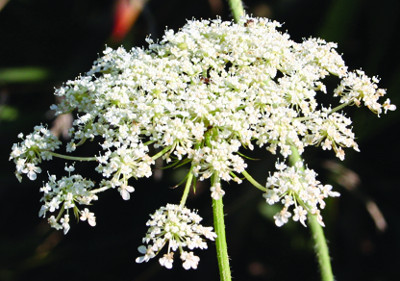Wild carrot (Queen Anne’s lace)
August 28, 2015
Daucus carota L.
Life cycle
Erect, fernlike biennial.

Wild carrot seedling.
Leaves
First-year leaves originate from a basal rosette followed by an erect flowering stem with few leaves in the second year. Cotyledons are long, very narrow and thin. Leaves are doubly compound, fernlike and attached by long stalks inflated at the base. Damaged leaves will emit a carrot-like odor.

Fern-like leaf of wild carrot.
Stems
Erect, hollow, grooved, rough-hairy stems elongate during the second year, up to 5 feet tall with numerous branches.
Flowers and fruit
Numerous white flowers, often with a central purple flower, form terminal, 2- to 6-inch-wide, flat-topped clusters. Fruit have two egg-shaped sections; each section is yellow to grayish brown, flattened on one side and ridged with barbed spines.

Wild carrot flower cluster.
Reproduction
Seeds.
Similar weeds
Common yarrow (Achillea millefolium L.) Differs by having a rhizomatous perennial nature, more finely dissected leaves that lack a carrot-like odor, and a shorter, bushier appearance at maturity.
Poison hemlock (Conium maculatum L.) Differs by having hairless, waxy, purple-spotted stems and dark, glossy green leaves that have a musty odor.
Print a PDF of this page: Wild carrot



 Print
Print Email
Email